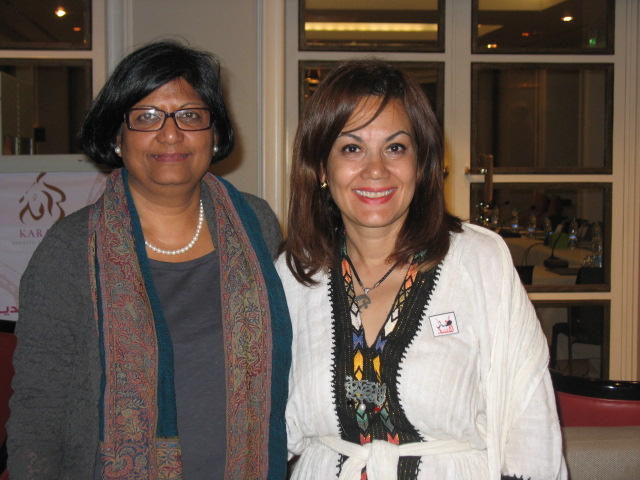Country in Focus: Egypt

On 11 February 2011, after 18 days of mass protest across the country, Egyptian president Hosni Mubarak was brought down after having ruled the country for 30 years. This popular pro-democratic movement was composed of men and women from all walks of life, asking for political, economical and social improvements. Religion, gender and age didn’t matter; there was a united feeling of nationalism and harmony under one flag - no division of separate groups. This however gave women false hope because they were certain that change was inevitable. The opposite proved to be true as after the revolution these women were told “to go back to their homes and be good mothers and wives”. Moreover, following the protest, army officers arrested a number of women that were involved after which they were beaten, given electric shocks and subjected to strip searches.
Since the revolution, women have been increasingly overlooked in decision making processes. For example, there was not a single female member of the Constitutional Amendments Committee appointed by the Supreme Council of the Armed Forces. In addition, the interim government which was formed to administer the country during the transitional period consisted of only one female minister.
Gender Concerns International closely followed the Egyptian uprising, with particular interest in the role of women in shaping political life and future governance structures. In Egypt, a tiny minority of women is currently represented in parliament – only 14% of the People’s Assembly (Lower House) and less than 7% of the Shura Council (Upper House). Further work will be needed to build on efforts already begun to improve the skills of women parliamentarians and to strengthen their voice within governance structures and in plans for future reforms. There is also potential for capacity-building programmes for female parliamentarians, and options for Gender Election Monitoring Missions to ensure elections are free from bribery, fair and above-all inclusive.
Urgent action is needed to protect and strengthen the future role of women and women’s organisations during this critical transitional period. If gender equality is embedded into future development, the whole of society will gain. Without immediate action, there is a serious risk that the current opportunity to further women’s rights and contribute to a progressive and more equal society will be lost.
Gender Concerns International’s recent trip to Egypt in the second week of May, was a first step to reach these goals. Director Sabra Bano stated: “It was crucial for Gender Concerns to visit Egypt to understand the conditions women are facing during this time of transition and looks forward to building upon our working relationships.” Gender Concerns International aims to continue plans of development in the region with the various stakeholders and women’s organisations. To stay in closer contact to the fast evolving situation in Egypt, Gender Concerns International is willing to establish a branch in Cairo, continuing its dedication to women’s empowerment and to pursue gender equality in Egypt.
